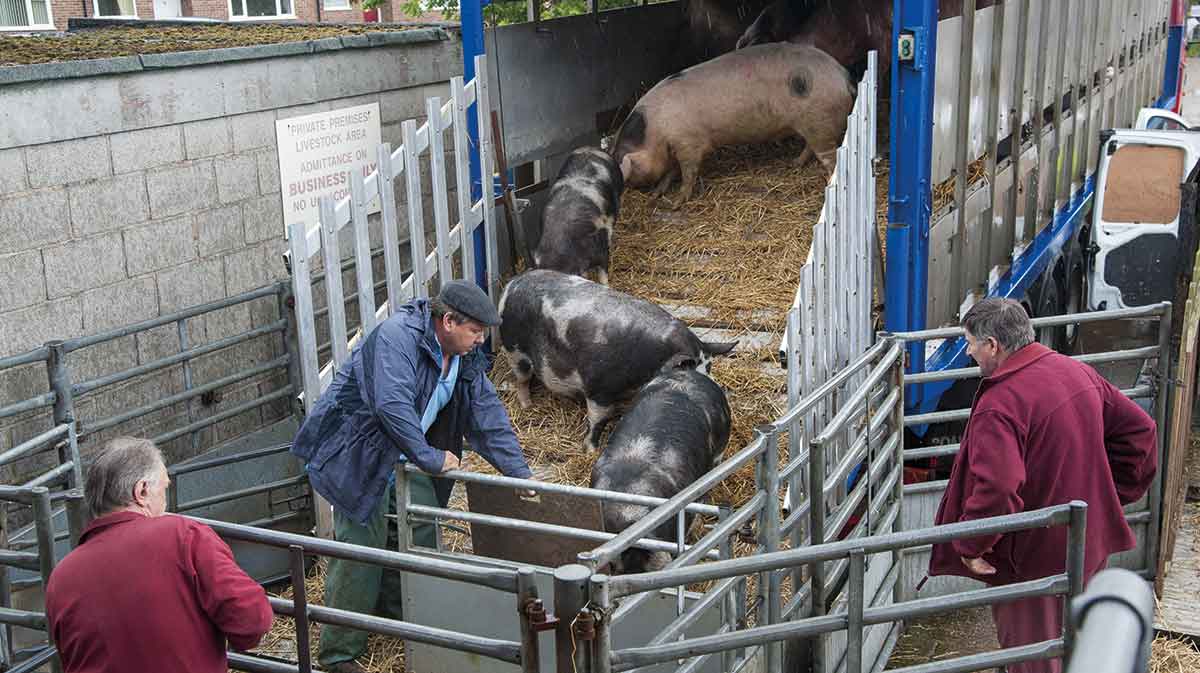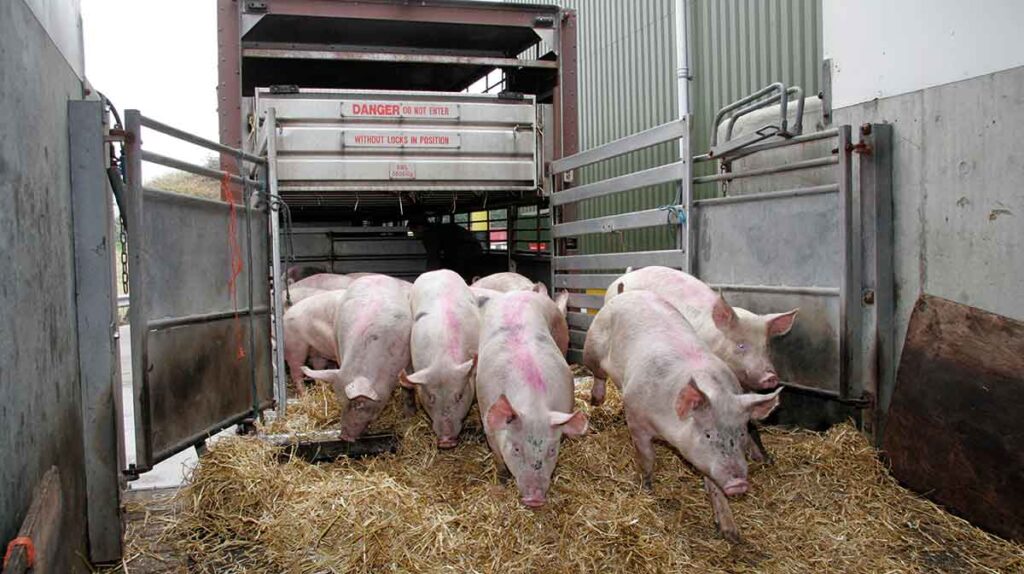They are an incredibly important part of the pig sector, and wider livestock industry, which simply couldn’t operate without them.
Their work is difficult, physically and logistically, and they share many of the same challenges faced by farmers when it comes to regulation, labour shortages and dealings with customers.
Yet many hauliers feel their contribution is largely unrecognised in a supply chain where the prosperity seems to lie with the supermarkets and processors, while farmers and hauliers struggle and more and more decide to call it a day. A level playing field feels far away,
Haulage bosses spoke to Pig World on the understanding that we didn’t reveal their identity or that of their business.
“Hauliers are 100% not recognised for the job they do. They have a big role to play in the sector,” a business owner from East Anglia said.
“We’ve been in the industry for more than 100 years. We’re a third-generation business, and we love it, but it’s not without its challenges. General haulage – anything outside of livestock transportation – has received massive pay increases from their customers, but working for farmers, you don’t get pay increases because they don’t have extra funds available. General hauliers probably pay their drivers 20% more than we pay.”
A Norfolk-based haulier, who has eight livestock vehicles, stressed that costs for livestock haulage businesses have gone up phenomenally.
“The only way we are going to get people into the industry is by paying them over the odds to do it, and they want top-of-the-range kit to do it,” they said.
“That’s only going to happen if hauliers get more money for the aggravation and stress of doing this job.”
RHA seeks relief from chancellor as costs rise
The recruitment challenge
The East Anglian business now has five drivers. It had seven earlier this year, but when two quit, the two lorries were sold, given the problems of recruiting people to fill the seats.
The owner said: “We were running around like headless chickens and actually not making any more money. You can interview around 50 people, and by the time you’ve told them they’re not only going to be driving a lorry, but they’re going to be loading up to 200 pigs per load, they’re going to be wee’d and pooed on, they’re going to get cold and wet, and then they’ll have to wash out – that puts a lot off.
“General hauliers are basically putting a guy in a seat, letting him go from place to place, not really having to get out of the cab – and they’re being paid more than we can pay our staff.”
A Northamptonshire haulage boss told a similar story. Their business no longer recruits.
“It’s just me, my dad and my boyfriend,” they said. “We used to run 20 lorries on the road, but once drivers left, we sold the lorry because it was hard enough trying to get someone that we trusted with the lorries and animals on board. It was easier to get rid of the lorries and dwindle down.”
The East Anglian boss said that over the past six months, a number of hauliers have left the sector because they can’t get decent staff or pay a fair wage.
“There aren’t enough hauliers to do the job, and that’s going to have a massive effect in the next year or so. If you’re doing two loads a day, every day, that’s bloody hard work,” they added.
“Drivers are going on farm and loading themselves; and they unload at the abattoir. For insurance purposes, we can’t have anybody else going into the trailer. Once they get to the farm, the farmer can’t go in and help them and then they have to wash out and go back for the second load and wash out again. The washing-out process when you’re doing three decks is a big job – and some trucks are dirtier than others.”

Abattoir issues
With fewer abattoirs and more throughputs, haulage companies are having to queue at abattoirs, according to the Norfolk haulier.
“Time deliveries are not great. They don’t work for hauliers, but they might work for abattoirs,” the boss said. “If you’re then having to sit there for three hours to unload and wash out, your lorry is becoming a one-load-a-day vehicle, and that’s got to show in your costs.”
A Suffolk haulage boss is celebrating 50 years in the industry in 2024, but with the challenges he and his son face daily, he’s not sure if he’ll reach 51 years of service.
“Most of our challenges are actually at the abattoirs – they are our biggest bugbear. A few weeks ago, we were told that we had to be at the abattoir at 6.30am, so my driver got up at 3am to get there for 6.30am, and he had to wait two hours to get unloaded – the abattoirs don’t talk to you, they don’t care,” he said.
“With an eight-hour licence, sitting still for two hours is a fair portion of your time – we get treated worse than the animals we cart. Haulage is the forgotten part of the sector. All delays cost money, and there isn’t enough money to be made out of the job.”
The Norfolk-based haulier said: “Hauliers are integral to the whole supply chain, but the importance of what hauliers do is not recognised.
“We’re doing a lot for very little. Producers have got to pay more, but they’ve also got to be paid more for their end product to do that. If you’re getting more, you don’t mind giving more, but we can’t subsidise the pig industry – we need a level playing field.”
The East Anglian boss said abattoirs can be hit and miss, and acknowledged they have recruitment issues, too. “Our staff are not just drivers, they are people, and they need to be recognised as that.”
Meanwhile, on farm, drivers have to become mathematicians when loading, according to the Suffolk haulage boss. “We’re allowed 235kg of pig product in every square metre of the lorry,” he said.
“So, when pigs vary in weight, you need to keep doing calculations of how many you can put on. We have to worry about that because our certification dictates how many pigs we can accommodate.”
The challenge of activists
Another challenge sometimes comes from activists. The East Anglian business has instilled into its drivers the importance of not getting into conversations with them.
“We’ve told them to let activists do whatever they want to, and that they need to be respectful and, hopefully, they’ll be respected back,” they said. “If activists want to talk to the driver, we have told them not to open windows, but to sit there and then just go into the abattoir.
“It seems to be only when they start opening dialogue with drivers that it gets to be a bit of an issue. Once someone stood in front of the lorry, and we just waited for the security officer to remove them.”
More proof that livestock haulage is no easy job that requires greater recognition, before it is too late.




